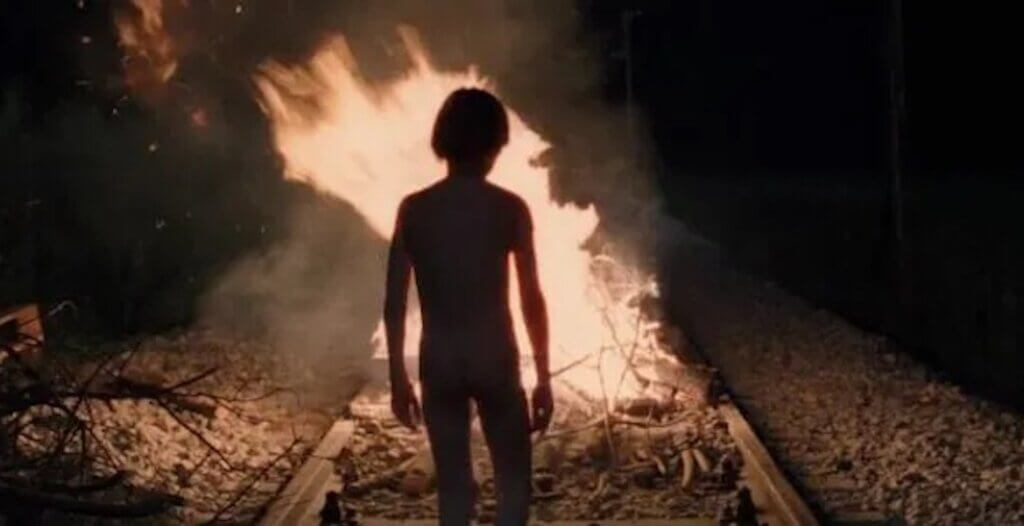<p class="p1"><span class="s1">Anyone who has seen a Michael Haneke film has a pretty good understanding of his style. His camera always takes a very clinical approach to filming its subjects, resulting in an unsettling atmosphere and quiet nihilism pervasive in nearly all of his films. While carefully staged and choreographed, Hanake’s work feels like a reflection of reality, like he is forcing us to watch the uglier or more pessimistic aspects of our world that we are generally inclined to push from our minds.</span></p>
<p class="p1"><span class="s1"> In <i>Funny Games </i>(1997), we watch as two psychopaths torture a family in their own home, while <i>Amour</i> (2012) follows an elderly couple, Anne and Georges, who must deal with the realities of their ageing minds and bodies after Anne suffers a debilitating stroke. Both films, though very different in theory, produce a similar mood of existential dread and an unrelenting sense of hopelessness, which are generally mirrored by the characters. The story universe in each of Haneke’s films is one that is unforgiving and unsympathetic to the plights of man. Although we are given an intimate view of his characters’ lives, they are merely tiny, insignificant parts of a vast universe that is indifferent to their well-being.</span></p>
<p class="p1"><span class="s1">Michael Haneke ventures farther from reality than he usually does in <i>Time of the Wolf</i>, a film set in a post-apocalyptic dystopia, in which resources are scarce, and people have been reduced to desperate nomads, renouncing their former morality for the sake of pragmatic survivalism. The cause of all this is somewhat unclear, though it is implied that some kind of disease or chemical disaster recently contaminated the vast majority of natural resources on the planet.</span></p>
<p class="p1"><span class="s1">Much like Haneke’s other films, <i>Time of the Wolf</i> focuses on the struggle of a single family: Anne (Isabelle Huppert), her husband Georges (Daniel Duval), and their two children, Eva (Anais Demoustier) and Ben (Lucas Biscombe). When the family retreats to their cabin in the woods, they find that it is occupied by an armed man and his wife and children. Though Georges wants to resolve the situation peacefully, he is shot and killed, leaving Anne to venture out into the wilderness with the children.</span></p>
<figure id="attachment_1214" aria-describedby="caption-attachment-1214" style="width: 850px" class="wp-caption aligncenter"><img class="wp-image-1214" src="https://philosophyinfilm.com/wp-content/uploads/2017/12/C5Xq5NxWQAAPoGp-300x136.jpg" alt="Isabelle Huppert apocalypse movie" width="850" height="384"><figcaption id="caption-attachment-1214" class="wp-caption-text">Time of the Wolf (2003)</figcaption></figure>
<p class="p1"><span class="s1">While the story is engaging, it does suffer from a rather slow pace, which is nothing new for those familiar with Haneke’s style. It is purposefully slow, so that we may see all the little indecencies that the family must suffer. They must forage for clothing and supplies from dead bodies, and, when they do find other survivors, they quickly fall to in-fighting and baseless accusations against one another. Some female survivors are pressured to perform sexual favors in exchange for supplies, and those with an abundance of food and water are not obliged to worry about those with nothing. <i>Time of the Wolf</i>, more than most of Haneke’s films, embraces the inherent nihilism of the narrative, forcing the audience to see the plight of people whose lives have been turned into a daily fight for survival.</span></p>
<p class="p1"><span class="s1">Despite the heightened sense of hopelessness in the narrative, part of what makes <i>Time of the Wolf </i>less effective than Haneke’s other films is that it takes a slightly different approach to storytelling. In his other work, there is generally either 1) quiet despair punctuated by scenes of jarring cruelty or violence, or 2) an invasive quality that forces spectators to become completely engrossed in the character’s lives. <i>Time of the Wolf</i> does not take either of these routes, instead allowing the quiet despair to build for the entirety of the film, and never pushing in close enough on the characters to feel as if we are invading their personal lives with our spectatorship. While it is an interesting change for Haneke, it has a kind of dulling effect on the film. Much like Anne’s family, the plot meanders from place to place, with little to show from each new encounter. </span></p>
<p class="p1"><span class="s1">Fans of Michael Haneke or Isabelle Huppert will surely love this film, and it is an exemplary piece of minimalistic filmmaking, but it suffers a little from slow pacing and a lack of jarring sequences that could have given it a renewed energy.</span></p>
<p class="p1"><span class="s1">Rating: ★★★½ out of 5</span></p>
<p class="p1"><span class="s1"><i>Time of the Wolf</i> can be somewhat difficult to track down, but the DVD is currently available for purchase via Amazon <a href="https://www.amazon.com/gp/product/B00062134E/ref=as_li_qf_sp_asin_il_tl?ie=UTF8&;tag=mjones34880c-20&;camp=1789&;creative=9325&;linkCode=as2&;creativeASIN=B00062134E&;linkId=067975f5170336560e90bf06b6cc42a1">here</a>.</span></p>

Review: Time of the Wolf (Le Temps Du Loup, 2003) ★★★½

